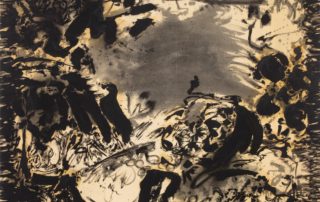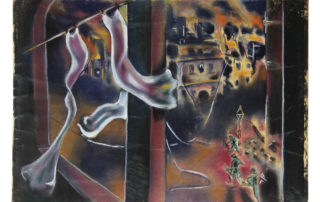Remembering Friedel:
An Intimate View of Friedel Dzubas (1915-1994)
Featuring Karen Wilkin and Sandi Slone
In a prolific career that spanned nearly five decades, Friedel Dzubas (b. Berlin, 1915–d. 1994, Newton, Mass.) articulated his mature style by the 1970s, creating a striking visual language from counterpoised abstract shapes of brushed color that he juxtaposed, overlapped, and opened to reveal his gessoed grounds. Yet, in prior years, Dzubas’s early work in Berlin were influenced by Expressionist artist of the two primary groups known as Die Brücke and Die Blaue Reiter. As Dzubas told curator Charles Millard in 1982, “Their unheard-of brashness of color; that was really brave. That was very exciting. Color’s an emotional thing. These people not only spoke directly; they felt deeply. There was passion.” His early pen and ink watercolors embed the [...]




